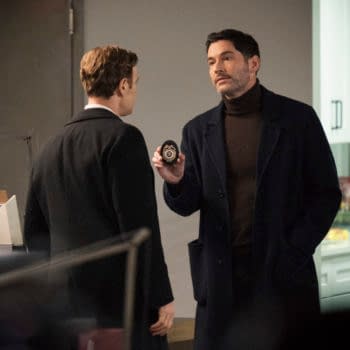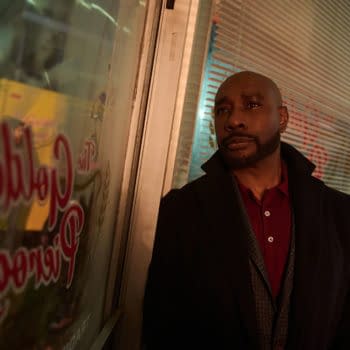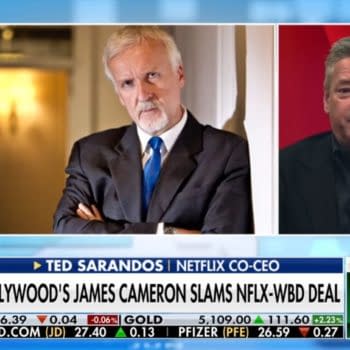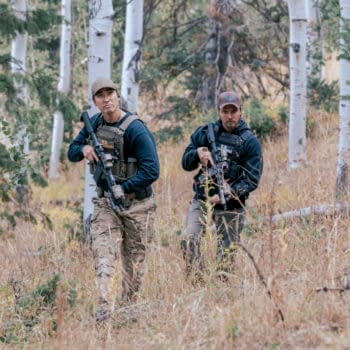Posted in: HBO, Opinion, streaming, TV, TV | Tagged: HBO, hbo max, opinion, the last of us
"The Last of Us" Lied to Us: Here's Why That's A Beautiful Thing
I'm glad The Last of Us series creators Craig Mazin & Neil Druckmann let the HBO series tell viewers the truth about the changes they made.
Before the pitchforks & flaming torches go chasing me into the pop culture town square to be burned alive at the clickbait stake, let me clear up something before anyone takes anything negative away from that headline. With every episode, Craig Mazin & Neil Druckmann's series adaptation of The Last of Us reaffirms my life-long love for television. It is a masterclass in episodic storytelling that elevates the televised artform in ways we haven't seen in quite some time. Not only has TLOU set the bar for best series this year at a nosebleed-resulting height, but it very well may have given us one of the best single episodes of television since the small screens came into our homes (S01E03 "Long, Long Time"). And while Pedro Pascal and Bella Ramsey's chemistry is the glue that bonds it all together, the entire ensemble cast, as well as the creative teams behind the scenes, are just as deserving of the spotlight. In fact, if The Last of Us isn't the series to break through the awards season bias against genre programming (we're looking at you, Emmys), then we need to tear up & redo the entire awards process. But part of the reason why we are where we are is that Mazin & Druckmann lied – and we should be thanking them for it.
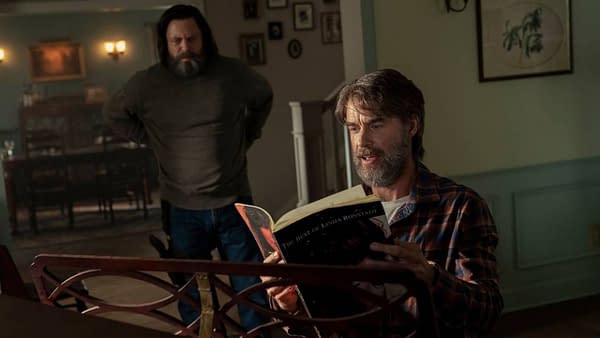
Just so there's no confusion, I'm not one who automatically assigns morality to lying… meaning, I don't see the act of lying as automatically a bad thing. We've seen time and time again, either "big picture" or in our personal lives, that lying can be a positive. Hell, lying can save lives. But like most "precise tools," it needs to be used sparingly and effectively. And that's what I feel like Mazin & Druckmann did, because they knew that there would be a ton of eyeballs on then as they began developing the live-action adaptation of a video game franchise that fans are very protective of – sometimes, too protective.
Because it tends to be the "gatekeeping" crowd who are the loudest, pushing back on anything & everything that deviates even the slightest from the "cherished" original work. And when they get loud enough and for a long enough time, media outlets begin picking up on it. And the next thing you know, your series adaptation is "Dead Show Walking," as the waters have already been poisoned before a single episode hits our screens (or even before the season's finished filming). And this isn't exclusive to video game fans & adaptations – just ask the creative team behind Netflix's Cowboy Bebop how badly they were undercut because they "dared" offer an adaptation that never claimed to be a direct panel-to-screen take.
So Mazin & Druckmann made sure the fans knew right up until the premiere of The Last of Us that this series wasn't going to be taking any serious "dramatic licenses" and was going to stay faithful to the video game storylines. And they did a great job rolling out looks at the season that definitely matched up well with the game, as was evident by the number side-by-side comparisons on social media. And then, series premiere "When You're Lost in the Darkness" hit their screens… and the fans were pleased. Oh, they were very pleased. "This is the adaptation we wanted! This was what we were waiting for!" Between the responses from the critics & fans and the viewing numbers that came in, it was clear that Mazin, Druckmann & HBO had a huge hit on their hands.
And that's when the duo began pulling back the curtain on their "lie," offering four subsequent episodes that remained faithful to the heart & soul of what the video game had to say while expanding greatly upon it. Now, heading into the season's sixth episode, I think we could safely say that at least half of what we've seen was created exclusively for the series. And guest what? It doesn't just work… it achieves. And guess what else? Except for the ratings bomb & rumblings by trolls who can't buy into the idea that members of the LGBTQ would populate the show's world, the fans are liking it, too. Again, the ever-growing viewing numbers are all the proof you need of that.
But do I believe the show would have had this level of success if it were completely honest with the fans upfront about what would be changed or added? No, I definitely do not. In a lot of ways, what Mazin and Druckmann did with The Last of Us heading into its debut reminds me of Damon Lindelof's approach to selling folks on HBO's Watchmen in 2019. In that instance, Lindelof made it clear that his series would only be universe-building on things based on things that happened after the ending of Alan Moore & Dave Gibbons' comic book classic. But by the time the nine-episode, Emmy Award-winning series wrapped up its run, it was pretty clear that Lindelof had enjoyed some time in the original "Watchmen" sandbox, too.
But in both instances, we had creators who treated the truth a little like Silly Putty because it served a greater creative good. Because art shouldn't be killed on the vine by those too close-minded to the possibility that the vision of what they love that they hold onto so dearly in their hearts doesn't disappear or get diminished when another artist decides to offer their take.




